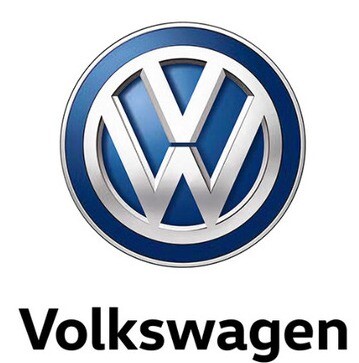hankyoreh
Links to other country sites 다른 나라 사이트 링크
Volkswagen tries to regain footing in South Korean market following emissions scandal

Volkswagen is attempting to make new inroads on the South Korea market after its emissions tampering scandal with expanded sales and technology testing for self-driving cars. But South Korean consumers remain unhappy over the automaker’s failure to provide a suitable apology or compensation.
Volkswagen, which launched its new Passat GT midsize sedan last month, plans to come out as early as next month with the Tiguan, a new SUV model, and the Atheon, a midsize four-door coupe. Volkswagen Group affiliate Audi first resumed sales in Nov. 2017 with its R8 Coupe sports car.
Audi has begun technology testing after receiving a temporary self-driving license for the A8 model from the Ministry of Land, Infrastructure and Transport on Mar. 6. Audi Volkswagen Korea said it was the “first imported car to receive a temporary self-driving license.”
Audi’s goal is to use big data on the South Korean road and traffic environments from the test run to eventually develop a “Level 3 traffic jam pilot” capable of operating without driver intervention. As they re-emerge eighteen months after having South Korean sales suspended over “Dieselgate,” Audi and Volkswagen appear to be hanging their hopes on future car technology testing to improve their tarnished image.
But many South Koreans are responding negatively to Audi and Volkswagen’s activities after what is seen as their failure to offer a suitable apology and compensation for the tampering incident. Following civil action in connection with Volkswagen’s emissions tampering, administrative action and a Constitutional appeal have been filed in South Korea. A first-trial ruling is expected within the year in a class action suit by around 5,000 consumers demanding replacement and refunds for illegally sold vehicles.
“Unlike in the US, Volkswagen has never acknowledged illegally tampering with emissions reduction devices in South Korea,” said attorney Ha Jong-seon of the Barun law firm, which is representing the plaintiffs.
“It’s shameless for them to resume sales and begin technology testing without an apology or compensation,” Ha said.
Around 125,000 of the Volkswagen vehicles implicated in tampering were sold in South Korea. The recall rate remains at only around 50%– which means half the vehicles in question are still out on the roads producing emissions above standard levels.
In the US, Volkswagen paid US$30 billion (around 34 trillion won) on vehicle repurchasing, repairs, and civil and criminal fines after admitting to tampering. In South Korea, it provided vouchers worth one million won (US$940) for its vehicles without acknowledging tampering or assuming any responsibility for compensation.
By Hong Dae-seon, staff reporter
Please direct questions or comments to [english@hani.co.kr]
Editorial・opinion
![[Column] Has Korea, too, crossed the Rubicon on China? [Column] Has Korea, too, crossed the Rubicon on China?](https://flexible.img.hani.co.kr/flexible/normal/500/300/imgdb/original/2024/0419/9317135153409185.jpg) [Column] Has Korea, too, crossed the Rubicon on China?
[Column] Has Korea, too, crossed the Rubicon on China?![[Correspondent’s column] In Japan’s alliance with US, echoes of its past alliances with UK [Correspondent’s column] In Japan’s alliance with US, echoes of its past alliances with UK](https://flexible.img.hani.co.kr/flexible/normal/500/300/imgdb/original/2024/0419/2317135166563519.jpg) [Correspondent’s column] In Japan’s alliance with US, echoes of its past alliances with UK
[Correspondent’s column] In Japan’s alliance with US, echoes of its past alliances with UK- [Editorial] Does Yoon think the Korean public is wrong?
- [Editorial] As it bolsters its alliance with US, Japan must be accountable for past
- [Guest essay] Amending the Constitution is Yoon’s key to leaving office in public’s good graces
- [Editorial] 10 years on, lessons of Sewol tragedy must never be forgotten
- [Column] A death blow to Korea’s prosecutor politics
- [Correspondent’s column] The US and the end of Japanese pacifism
- [Guest essay] How Korea turned its trainee doctors into monsters
- [Guest essay] As someone who helped forge Seoul-Moscow ties, their status today troubles me
Most viewed articles
- 1[Column] The clock is ticking for Korea’s first lady
- 2After 2 months of delayed, denied medical care, Koreans worry worst may be yet to come
- 3[Column] Has Korea, too, crossed the Rubicon on China?
- 4US overtakes China as Korea’s top export market, prompting trade sanction jitters
- 5[Editorial] When the choice is kids or career, Korea will never overcome birth rate woes
- 6[Correspondent’s column] In Japan’s alliance with US, echoes of its past alliances with UK
- 7[Photo] Smile ambassador, you’re on camera
- 8Hong Se-hwa, voice for tolerance whose memoir of exile touched a chord, dies at 76
- 9Nearly 1 in 5 N. Korean defectors say they regret coming to S. Korea
- 10Strong dollar isn’t all that’s pushing won exchange rate into to 1,400 range